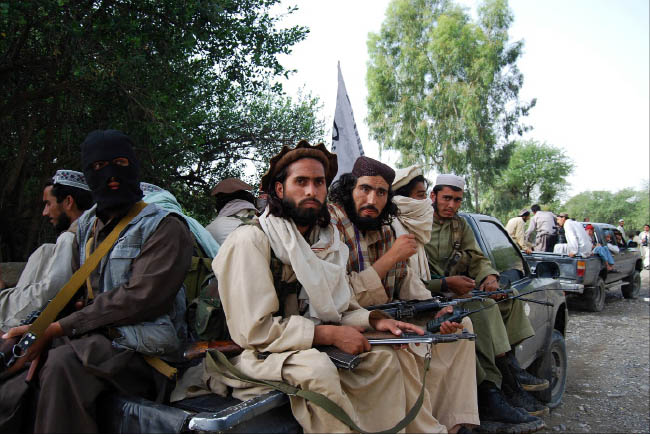The relation between Washington and Islamabad has hit rock bottom following the recent statements of US President Donald Trump, who claims that Pakistan harbors militant fighters. The relation between US and Pakistan soared with the declaration of Trump’s policy about Afghanistan and South Asia. The last sense of bonhomie seems to have ended between US-Pak officials.
Declaring the US strategy for South Asia and Afghanistan, President Trump said, “Pakistan often gives safe haven to agents of chaos, violence and terror”. On the first day of 2018, he tweeted, “…They give safe haven to the terrorists we hunt in Afghanistan, with little help. No more!” These words, which were spoken in two different times, reflect Trump’s strong sense of anger regarding Pakistan as he seeks to pressure Islamabad to play a genuine role in campaigning against terrorism.
As a backlash against Trump’s recent statement, Pakistan’s foreign minister Khawaja Asif said that Trump sought to blame Pakistan for its failure to win the war on terror in Afghanistan. Furthermore, Pakistan’s foreign office summoned the US ambassador in Islamabad on Monday and lodged its protest against Trump’s tweet. Meanwhile, Pakistani angry demonstrators burnt the US flag as a protest against his words.
Following the 9/11 terrorist attack, the US launched war on terror in Afghanistan which resulted in the collapse of the Taliban’s regime; however, the Taliban’s guerilla fighting continued and Afghanistan was ranked the 2nd worst country, out of 163, in terms of terrorism in the world in 2016. Both Afghan and US soldiers paid heavy sacrifices in campaigning against terrorism with sixteen years of conflicts, but the war on terror did not bear the desired result as US soldiers withdrew from Afghanistan in 2014. Only a few number of US soldiers, who remained in the country after 2014, adopted an advisory role rather than military one.
Unlike his predecessor, Donald Trump vowed to eliminate terrorism from the surface of earth and sought to increase the number of US soldiers in Afghanistan. He believed that a hasty withdrawal from Afghanistan could lead to horrible consequences and leave a vacuum that would be filled by terrorist fighters. Therefore, he was of the opinion that the Taliban will not stop violence and deemed military role a right strategy to mitigate the conflicts.
Earlier, the US also offered the Taliban to come to negotiating table. The establishment of Quadrilateral Coordination Group (QCG), consisting of Afghanistan, Pakistan, China, and the US, was aimed to bringing the Taliban to peace table, but it stalled when Mullah Omar’s successor Mullah Akhtar Mansour was killed by the US drone in Baluchistan. This issue tensed the relation between Washington and Islamabad. Although the QCG was revived in Muscat, Oman’s capital, the meeting was ended without fruition.
Subsequently, Donald Trump claimed that Pakistan did not play its role with bona fide intention. Trump’s words came as US Vice President Mike Pence urged Pakistan, days ago, to stop harboring terrorists and target their safe havens in its soil. However, Pakistani officials have persistently denied harboring terrorists saying that they will play their role genuinely in terms of fighting terrorism.
The blame game which has been ushered in between Washington and Islamabad and also continued between Kabul and Islamabad will deteriorate trilateral relation on the one hand, and compound the issue of terrorism on the other hand. If there is a trust issue between states, they have to discuss it frankly and persuade one another to take concrete step in eliminating terrorism.
After all, terrorism has been changed into a highly serious issue in the region, including Afghanistan. Afghans sustained heavy casualties within more than a decade and half. The two past years were the deadliest years for Afghan people as thousands of people were killed and wounded as a result of terrorist attacks and suicide bombings. Loyalists to the self-styled Islamic State of Iraq and the Levant (ISIL) that gained firm foothold in the country deteriorated the security situation and increased the number of fatalities.
To view the escalated militancy in the region, all countries have to play their role genuinely in campaigning against terrorism. Indeed, we live in the “global village” and a country’s security situation will affect the regional security. In this case, if a country neglects its role, the entire region will bear the consequence. So, all states – be it Pakistan, Afghanistan or any other countries – need to prove their sincerity in fighting terrorism for the world. It is further believed that if all states take concrete step in this regard, the ragtag networks of terrorists will not be able to win the conflict and the ongoing violence will come to an end in the near future.
Home » Opinion » Terrorism – A Bone of Contention
Terrorism – A Bone of Contention
| Hujjatullah Zia

